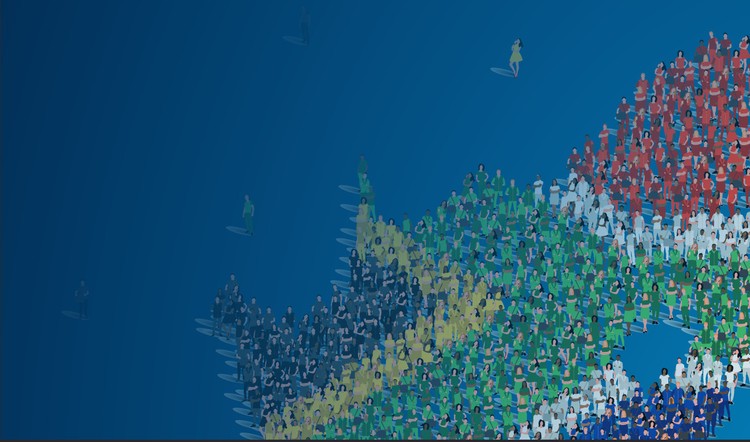
11 July 2024
The Medical Research Council has published a damning report on Census 2022.
The Medical Research Council has published a technical report that damns the 2022 census. The census was widely criticised from the day it was published, but this 56-page report analyses its problems in detail.
“Uncritical use of the 2022 census results for policy and planning purposes would be unwise, pending a full review of the 2022 census results,” write the report’s authors, Tom Moultrie and Rob Dorrington of the University of Cape Town’s Centre for Actuarial Research.
“[I]t would be inadvisable for population projections … to base projections on the 2022 census results without adjustment for the problems identified in this report,” they state.
The problems are many:
The authors also say: “Much of the data from the 2022 census, which would aid in understanding the results, is yet to be released. This includes the data on fertility, mortality, and more detailed data on migration based on place of residence at the previous census. These data should be released without delay.”
Moultrie and Dorrington analyse why the census was so flawed. Originally the census was to be carried out in 2021 but the Covid pandemic delayed it.
“Although it is not clear to what extent preparations for a census in October 2021 were on track in March 2020, there is no doubt that the outbreak of the Covid-19 epidemic was a major interruption, forcing Stats SA to delay the census,” the authors explain.
They further write: “Unfortunately, the threat of the withdrawal of funding by National Treasury if the census was not undertaken in the financial year ending March 2022 offered Stats SA Hobson’s choice – either carry out the census in that financial year or lose the funding for the census, possibly to 2031. Thus, Stats SA was forced to undertake the census while not ready to do so, and entered the enumeration period in a state of significant unreadiness …”.
For example, field workers and staff were ill-prepared. Stats SA “perhaps relied excessively on the hope that untried remote data collection (e.g. via web or telephonic enumeration) would make things easier.” IT systems were not “fully stress-tested”.
Their conclusions are unequivocal: “Despite pronouncements by both the Statistician-General and the Chair of Statistics Council that Census 2022 is fit for purpose, there is sufficient doubt about the quality and content of the data … at least in terms of estimates of the numbers of people, are probably not fit for purpose to assist with fiscal allocation, or for national, provincial, or particularly local government planning and resource allocation, or for projects such as estimating the National Burden of Disease.”
They write that the population estimates “may lead to significant misallocation of resources through (for example) the Equitable Share Formulae; or of education and health resources at national, provincial, or local government levels”.
“The extent of the undercount revealed by the PES, as well as our doubts about the accuracy of and uncertainty about the PES adjustments applied to the enumerated populations to derive the final estimated counts, suggest that this census was not a success.”
They urge users of the 2022 census data to “exercise caution in their use and interpretation, especially for planning and implementation at district and municipal levels”.
It will be necessary for an alternative ‘unofficial’, but at least coherent, set of population estimates to be produced – down to at least a district level, the authors say.
“Finally, there is an urgent need for alternative population estimates that may better describe the South African population in the mid-2020s than those in the Census 2022 data. Those estimates might then be used to better inform evidence-based resource allocation and planning in order to benefit the lives of all South Africans.”
In her foreword to the report, MRC head Glenda Gray writes: “Accurate census data matter. Knowing the size, demographic and socio-economic characteristics, and spatial distribution of our population is critical for both the planning and delivery of services, as well as ensuring the equitable allocation of scarce resources. A census is fundamental to all facets of governance, not least health and health related research.”
She concludes: “Not only should the census provide a snapshot of who we are as a nation; and assist in helping us appreciate the historical obstacles we have overcome, it should also aid in the identification of the challenges that still lie ahead of us. It is of great concern that this report reveals such substantive issues, especially given that we will have to wait until 2031 for the next census.”
Low-quality census data are also a problem for news media. For example GroundUp frequently refers to and links to Adrian Frith’s excellent website that presents the Census 2011 results. But that data is now 13 years old and out-of-date.
Stats SA has published a statement disputing the MRC report but without providing any details.